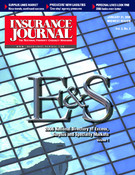Allstate Insurance Company v. Reid
(1st Cir. Nov. 30, 2005)
Ruling: Coverage Not Available for Damage to Boat Towed by Insured.
Defendant and his friend, May, were returning from a fishing trip. Defendant was towing May’s boat and trailer when he lost control of his vehicle, causing damage to the boat and trailer. May’s insurance company tendered $7,324.74 and filed a subrogation suit against defendant. Plaintiff, defendant’s insurer, denied coverage, but the lower court disagreed and found plaintiff’s refusal to provide defendant with a defense arbitrary and capricious. The policy provided that there was no coverage for any damages to property transported by an insured. The policy further provided that the most plaintiff would pay for under the collision coverage for non-owned trailers was $500.00. The Court of Appeal found the policy unambiguously excluded coverage for the boat, and provided only $500.00 of coverage for damage to the trailer. Because the allegations of the complaint disclosed at least the possibility of liability under the policy, however, the court found State Farm should have provided defendant with a defense.
Attorneys Fees
Masonic Temple Association of Crawfordsville v. Indiana Farmers Mutual Insurance Co.
(Ind. App. Nov. 29, 2005)
Ruling: Indiana Court Adopts Third-Party Litigation Exception For Awards of Attorneys’ Fees.
In action for recovery of costs associated with construction defects, the court held that claimant was entitled to attorneys’ fees. Specifically, the court found that when the insurer’s breach of contract caused the claimant to engage in litigation with a third party to protect its interests and such action would not have been necessary but for the insurer’s breach, attornes’ fees and litigation expenses incurred in litigation with a third party may be recovered as an element of the claimant’s damages from the insurer’s breach of contract.
Actions and Proceedings
Bryan v. Peppers
(Mo. App. Nov. 8, 2005)
Ruling: Trial Court Erred in Severing Tort and UM Claims.
Bryan appealed from a judgment entered after a jury trial on his tort claim against Joseph Peppers. Bryan sustained personal injuries when his truck was rear-ended by Peppers’ vehicle. The collision also gave rise to an uninsured motorist (UM) contract claim by Bryan against his insurer, State Farm. Bryan sought UM benefits from State Farm because a phantom driver allegedly precipitated the automobile accident by stopping suddenly and without warning on the highway ahead of Bryan and Peppers. The trial court severed the UM contract claim and ordered that it be tried after Bryan’s tort claim against Peppers. During the tort trial, Peppers’ lawyer made a comment in opening statement suggesting that Bryan could identify the alleged phantom driver and that this driver probably contributed to cause the collision. Bryan’s request for a mistrial was overruled. The jury ultimately found in favor of Bryan, but he was awarded only $1,720.32 for his injuries. On appeal, Bryan contends that the trial court erred in severing the UM claim and in failing to grant a mistrial after Peppers’ lawyer injected the issue of the phantom driver’s fault during opening statement. Because we find both errors in combination caused substantial prejudice to Bryan, the Court of Appeals reversed and remanded for a new trial on all issues.
Actions and Proceedings
Bartleson v. Grinnell Mutual Reinsurance Company
(Iowa App. Nov. 9, 2005)
Ruling: Oral Binder for UM Benefits Extinguished Upon Issuance of New Policy Without UM Coverage.
Insured’s daughter brought suit against automobile insurer, alleging that she was entitled to underinsured motorist benefits. After the insured’s daughter was involved in an automobile accident (the daughter was a passenger in an underinsured vehicle), the insurer paid the statutory minimum payment of $20,000 to the insured’s daughter. Thereafter, the insured’s daughter commenced an action seeking a declaration that she was entitled to $100,000 under her father’s underinsured motorist coverage. The Iowa Court of Appeals affirmed judgment in favor of the insurer, finding that although the insured did not effectively cancel underinsured motorist coverage on his daughter’s behalf prior to her accident, any oral binder between the insured’s daughter and the insurer for underinsured motorist benefits was extinguished when the insurer issued a new policy to the daughter.
Actions and Proceedings
Ernst v. Acuity
(N.D. Oct. 24, 2004)
Ruling: Coverage for Homeowners’ Claim Precluded by Business Risk Exclusion.
After contractor entered into Miller-Shugart settlement with homeowners who sought to recover for improper installation of flooring, homeowners brought action against the contractor’s insurer seeking recovery from proceeds of a commercial general liability (CGL) policy. The district court granted the insurer’s motion for summary judgment, which the homeowners then appealed. The Supreme Court affirmed the district court’s decision on summary judgment, holding that business risk exclusion precluded coverage for homeowners’ damages. In this regard, the court noted that damage to the homeowners’ flooring and baseboards occurred while insured was still working on flooring project and that all of the damages related to the cost of removing and replacing insured’s defective work.
s
Topics Lawsuits Carriers Homeowners
Was this article valuable?
Here are more articles you may enjoy.


 Pipeline Explodes at Delfin LNG Planned Project in Louisiana
Pipeline Explodes at Delfin LNG Planned Project in Louisiana  A 10-Year Wait for Autonomous Vehicles to Impact Insurers, Says Fitch
A 10-Year Wait for Autonomous Vehicles to Impact Insurers, Says Fitch  BMW Recalls Hundreds of Thousands of Cars Over Fire Risk
BMW Recalls Hundreds of Thousands of Cars Over Fire Risk  Insurance Issue Leaves Some Players Off World Baseball Classic Rosters
Insurance Issue Leaves Some Players Off World Baseball Classic Rosters 


